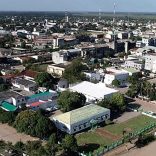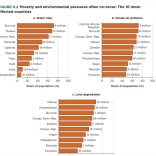Mozambique: Quelimane invests $150,000 in youth-led climate action projects
Japan and Africa to cooperate on solid waste management

AIM (File photo) / Hulene garbage dump
The Japanese government is determined to continue working with African governments in designing better solid waste management systems, a senior Japanese government official pledged in Maputo on Tuesday.
Hitoshi Ono, the director of waste and recycling management policies in the Japanese Environment Ministry, was speaking at an international seminar on waste management which was also billed as a preparatory meeting for the creation of “the African Clean Cities Platform”.
“We have to take action to establish better waste management systems which will help improve the quality of life for residents of the cities and also attract the investments necessary for the sustainable development of Africa”, he said.
At the three day seminar, participants from more than 20 countries are sharing lessons from a project implemented in the Maputo municipality by the Japanese International Cooperation Agency (JICA).
The JICA resident representative in Mozambique, Katsuyoshi Sudo, said JICA had established a cooperation agreement with Maputo Municipal Council in 2013 to promote what JICA calls “the three Rs” – reducing, re-using and recycling solid waste.
“This meeting is a great opportunity for JICA to disseminate to other African countries the positive results achieved, and that will certainly contribute to setting up the platform, which will be created in Maputo”, said Sudo.
The pilot project is now over, but Sudo claimed the activities it started are now being implemented continually. He said that, among the successes were the separation from other trash of plastic bottles and other plastic waste, and of organic waste which can be transformed into compost for use as fertilizer.
But Sudo gave no data on how much waste was separated, recycled or reused. A walk around the streets of Maputo would suggest that the answer is very little, since the waste containers still provide no facilities for separate categories of waste.
Sudo claimed that what was most important was the creation of model for solid waste management, with the involvement of local associations. This would include separate collection of different types of waste, and the involvement of private businesses in recycling.
After the end of the pilot project in Maputo, the possibility of replicating it in other cities such as Matola, Beira, Quelimane and Nampula is under consideration. JICA is working with the Ministry of Land, Environment and Rural Development to involve these municipalities in recycling initiatives.













Leave a Reply
Be the First to Comment!
You must be logged in to post a comment.
You must be logged in to post a comment.